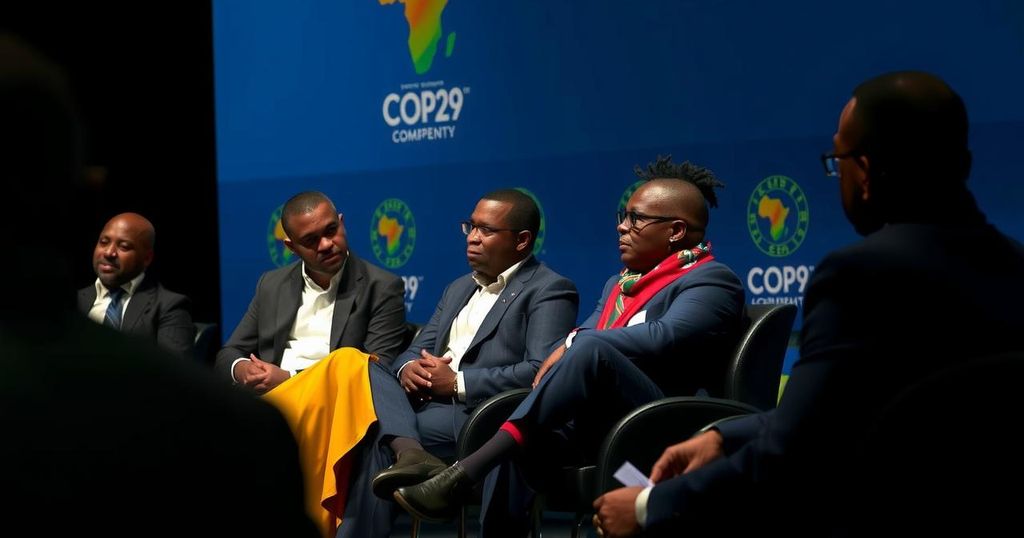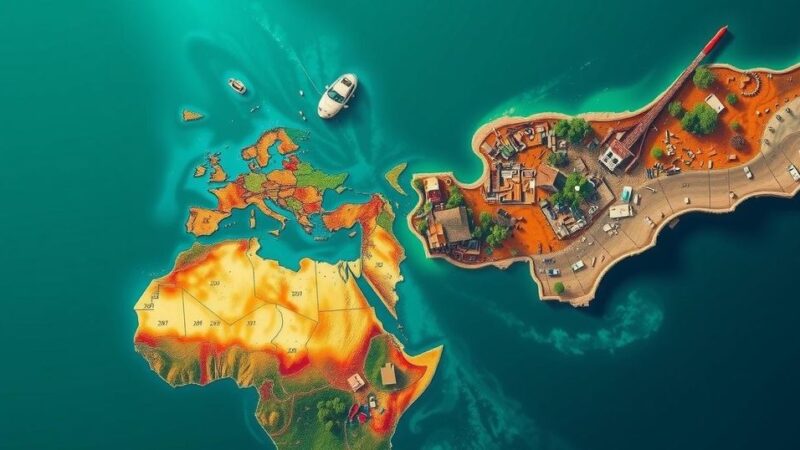African climate leadership is pivotal at COP29, emphasizing urgent collaborative action against climate change and its associated crises. The AMCEN Special Session underscored the critical links between biodiversity loss, drought, and climate challenges. Expected outcomes include a finalization of the New Quantified Goal on Climate Finance. Innovative financing and strong commitments from major emitters in Nationally Determined Contributions (NDCs) are essential for Africa’s sustainable development and resilience against climate impacts.
The critical dialogue on African climate leadership emerged at COP29, with prominent figures emphasizing the necessity for cohesive actions against climate-related challenges. The AMCEN Special Session illustrated the profound interconnection between drought, biodiversity loss, and climate change, underscoring the urgency for collaborative efforts across various environmental accords. As nations in Southern Africa face historic droughts, the importance of a unified stance at COP29 cannot be overstated, especially regarding the anticipated New Quantified Goal on Climate Finance. This goal is vital for mobilizing resources to combat the escalating crises of climate change and biodiversity loss affecting Africa disproportionately. The alarming predictions from the World Meteorological Organization forecast that by 2030, approximately 118 million people in Africa may encounter extreme weather conditions such as droughts, floods, and heatwaves, leading to an estimated GDP loss of five percent due to these climate impacts. Hence, there is an evident need for increased international support and innovative financing mechanisms, such as private sector investments and debt-for-nature swaps. Furthermore, embracing local community engagement and Indigenous knowledge enhances adaptive capacities against climate change. Adaptation is a crucial element, but mitigation is imperative as well. African nations, though not responsible for the climate crisis, continue to bear its brunt. The recent G20 expansion exemplified this as the African Union’s inclusion raised emissions considerably without significant contributions from the new member nations. Consequently, developed countries must undertake the majority of the responsibilities in future Nationally Determined Contributions (NDCs), with clear targets for reducing greenhouse gas emissions. As Africa progresses, it is crucial to align economic growth with low-carbon development pathways. New NDCs should be framed as blueprints that not only focus on mitigation but also aim to generate green jobs, enhance biodiversity, and secure clean energy access. Africa’s wealth in natural resources and its youthful population present unique opportunities for innovation and sustainable development. Furthermore, Africa possesses extensive potential for land restoration and the provision of essential minerals necessary for the energy transition. To leverage these resources effectively, it is imperative that value addition occurs locally, safeguarding environmental integrity through responsible mining practices and policies that emphasize sustainability. Although climate change remains a daunting challenge, it simultaneously presents opportunities for African nations to assume leadership roles in global climate action. Thus, there is a crucial need to act decisively, harnessing these opportunities to secure a sustainable future.
The significance of leadership in addressing climate change in Africa is underscored by the context provided by recent meetings and reports detailing the continent’s vulnerabilities and strengths. The AMCEN Special Session and subsequent discussions at COP29 emphasize that Africa faces a triple planetary crisis—climate change, biodiversity loss, and pollution—that necessitates urgent and joint action from member states. As African nations grapple with the impact of these crises, such as increasing drought and resource depletion, their ability to negotiate effective climate finance solutions at COP29 will determine their adaptive capacity and resilience against future challenges.
In conclusion, the call for unified African leadership at COP29 highlights the urgent need for collaborative action against climate change, encompassing adaptation and mitigation strategies tailored to the continent’s unique circumstances. As nations work towards formulating and fulfilling their NDCs, it becomes clear that Africa can lead on climate issues by harnessing its abundant resources and innovative capacities. By facilitating local value addition and prioritizing sustainable development, African nations can emerge as global leaders in climate response, turning challenges into actionable opportunities.
Original Source: www.unep.org






